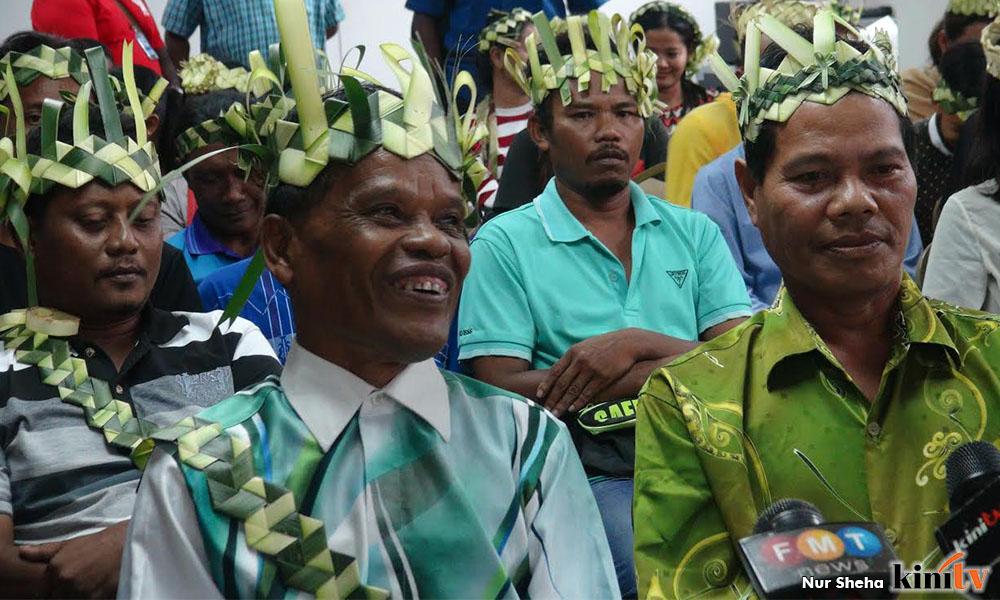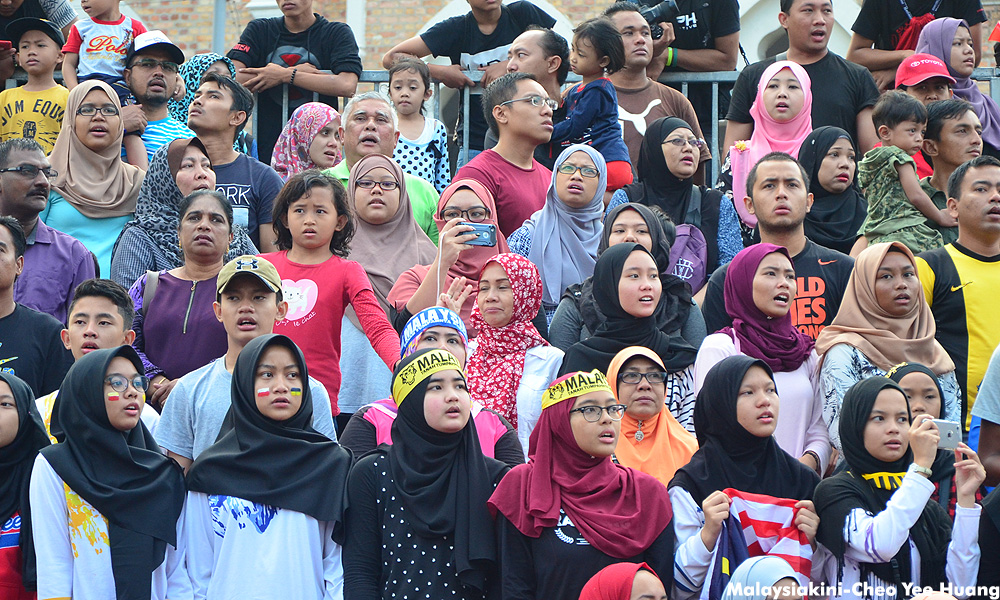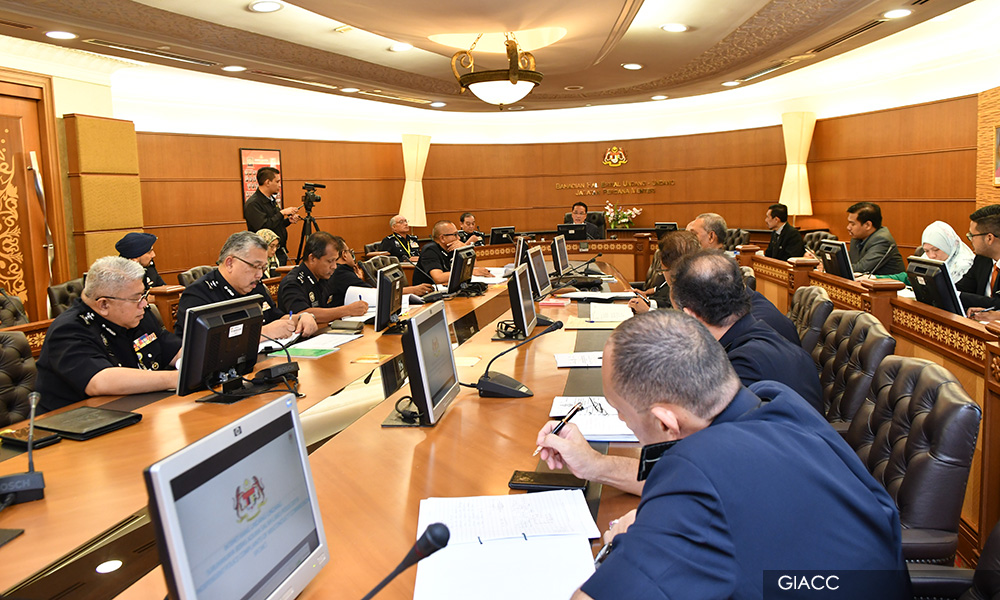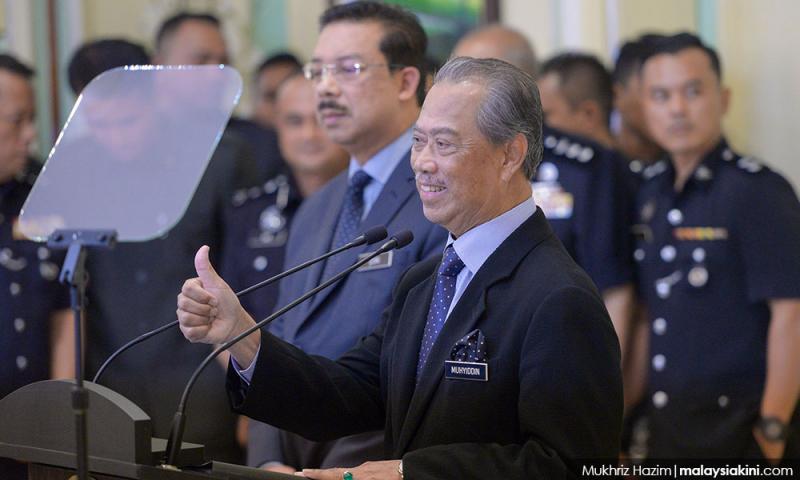Expectations of the 'cabinet that delivers'
COMMENT | Prime Minister Muhyiddin Yassin claims that his new cabinet is one that delivers. To survive the vote of confidence when Parliament resumes in May 2020, he has to show the country that he can do better than the previous Pakatan Harapan government by making good the reforms that he was a part of when he waved the Buku Harapan before the GE14.
To give him credit, he has one up on the last Harapan government by excluding from his ministerial line up any MPs who are facing corruption or other criminal charges. This contrasts with the fact that in the formation of the previous administration in May 2018 was a minister who was facing corruption charges.
Muhyiddin seems to have paid attention to the professional calibre of the person appointed as finance minister, however, the same cannot be said for those appointed to the critical “climate crisis” portfolios of the Energy and Environment Ministries. And, instead of having a “Special Functions” Ministry (responsible for what?) and a Federal Territories Ministry (which is superfluous when local government is elected), it would have been significantly more important to create an Indigenous Peoples Ministry to show a government that is inclusive and cares for our First Peoples.
Thus, what the new PM hasn’t done yet is to tell us what reforms his new cabinet will deliver and he needs to do this before the new parliamentary meeting in May 2020. Let me remind him of the reforms we expect:
Prioritise Orang Asal rights and livelihood
It is a priority that we put the rights and livelihood of the Orang Asal at the top of the national agenda by recognising their rights over the land they have been occupying for centuries, prohibiting logging in Orang Asal land and ensuring all Orang Asal villages have adequate social facilities and services.

The autonomy of the Orang Asal must be respected by ensuring their participation in all policy-making involving their interests and introducing policies and laws that comply with the United Nations Declaration on the Rights of Indigenous Peoples (UNDRIP), especially their right to customary land.
Sustainable development and environmental protection
All local people must be consulted before any development projects and all permanent forest and wildlife reserves gazetted. We want renewable energy projects that do not destroy forests or Orang Asal land and reject nuclear power and other toxic industries.
The government must lead with sustainable purpose, with policies, penalties and incentives that foster renewable energy and circular economic solutions instead of dependence on private sector “development” projects that have a track record of being environmentally harmful and socially destructive.
A people’s government will place sustainability and regeneration at the heart of policies that enforce recycling measures, responsible waste disposal and enact laws to protect green lungs and animal welfare. A cabinet that delivers would ban single-use plastic and the import of plastic wastes to emulate countries such as Rwanda.
An inclusive government
As a coalition with a de facto Malay-based core of Umno, PAS and Bersatu, the new Perikatan Nasional (PN) government has to assure the rest of the country that it will be fair to all ethnic communities. Before the GE14, both BN and PH had promised in their respective manifestoes to recognise the Unified Examination Certificate of the Independent Chinese Secondary Schools.
After two years, the Harapan government failed to do this. We, therefore, expect the new PN government to deliver on this 2018 promise so that these graduates can join the public tertiary education sector and the civil service. The new government can also reassure the Chinese and Tamil communities that financial allocations to their primary and secondary schools will continue.
It is high time to replace race-based policies with needs-based measures that truly benefit the lower-income and marginalized sectors. Today, with the lack of ethnic diversity in the civil and armed forces, it is also time that recruitment and promotion in these services be based on merit. I don’t think a two-third majority in Parliament is necessary to introduce these inclusive reforms.
Uphold women’s human rights and dignity
First of all, the new administration, in a major retrograde step, has appointed very few women to the cabinet.

It should make good for this by reviewing and amending all laws and constitutional provisions that discriminate on the basis of gender including the acquisition of citizenship status of non-citizen spouses; equal pay for women holding similar posts as men; provide for the housing, education and child-care needs of single-parent households; strengthen the law on sexual assault and harassment, including training for enforcement agencies, cyberbullying and stalking.
Thus, we expect all bills calling for reforms such as the Sexual Harassment Bill to be tabled at the May Parliamentary meeting.
Re-instate our democratic institutions
Authentic democracy involves ensuring neutral accountable mechanisms are in place: fixed terms for elected office bearers; free and fair elections, as well as local elections in which empowered communities can make their voices heard. It is time to bring back elected local councils that have been suspended since 1965.
The existing laws should be amended to allow freedom of assembly and association and freedom of expression and information as guaranteed by the fundamental liberties in the Federal Constitution: Enact a Freedom of Information (FOI) Act at federal and state levels which is reflective of the peoples’ right to know; no monopoly of ownership and control of the press and broadcasting stations by political parties or corporate bodies; the national broadcasting authority must be independent and non-partisan, answerable to Parliament and not to the Information Ministry.
Repeal all laws that allow arbitrary declaration of emergency; torture, capital punishment, detention-without-trial and incommunicado detention including NSC, Sosma, Pota, Poca. Abolish the death penalty in Malaysia, impose an immediate moratorium on all executions pending abolition and commute the sentences of all persons currently on death row.

Implement the Independent Police Complaints & Misconduct Commission (IPCMC) and other recommendations of the Royal Police Commission to ensure transparency and accountability by the police and other enforcement agencies such as the MACC.
No privatisation of our national assets
The previous Harapan government was beginning to privatise our GLCs. We need to renationalise these assets, especially land, water, energy, which belong to the Malaysian people instead of local and foreign capitalists.
This will not be that difficult to do as at present many of these assets are under the ownership and/or control of various government funds and government-linked companies (GLCs).
A pro-people government will be able open these GLCs to democratic control of the people and direct them to implement good labour and environmental policies.
Redistribute wealth fairly
The increasingly serious gap in income inequality needs to be addressed through progressive taxation on the high-income earners, their wealth and property and effective tax laws to ensure there are no tax loopholes for the super-rich.
Transfer pricing that enables the largest corporations to stash their profits in off-shore tax-free havens has to be curtailed by proper legislation. Capital allowances and tax holidays for foreign firms must be reviewed while a tax should be imposed on all international financial transactions and hedge funds.
Defend workers’ rights and interests
The right of all workers to unionise is a universal right and we want a progressive guaranteed living wage for all workers, including foreign workers.
Workers must be given the right to association, full employment, retrenchment, pension fund and workers’ representatives should be part of decision-making in enterprises. We want a Retrenchment fund for laid-off workers and implement universal pension for citizens aged over 70 years.
People-centred and caring social policies
Institute a Housing Development Board, managed by elected local councils to implement an effective low-cost public housing programme for rental or ownership throughout the country for the poor and marginalized communities, with adequate space for community activities, recreation and green areas.
For too long, the BN federal and Harapan state governments have allowed free rein to the private developers at the expense of the poor and marginalised. We need to prioritise the public transport system in the country for the benefit of the majority while regulating highway construction and car traffic in city and town centres.
We also want child-care and crèche facilities in all public and private sectors for working parents, homes and day-care centres for the elderly and disabled through benefits, support services, including access to mobile health care.
To conclude, the prime minister and his new cabinet would be advised to tell the country their agenda for the country before the vote of confidence at the May meeting of Parliament.
KUA KIA SOONG is Suaram adviser.
The views expressed here are those of the author/contributor and do not necessarily represent the views of Malaysiakini.
RM12.50 / month
- Unlimited access to award-winning journalism
- Comment and share your opinions on all our articles
- Gift interesting stories to your friends
- Tax deductable

 Kua Kia Soong
Kua Kia Soong